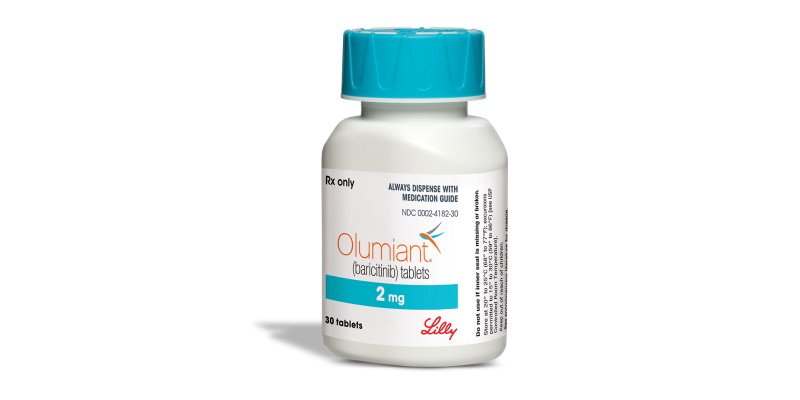Lilly’s Olumiant is first JAK drug backed by NICE for eczema

Eli Lilly’s JAK inhibitor Olumiant has become the first drug in the JAK inhibitor class to be recommended for NHS use in England and Wales as a treatment for atopic dermatitis, also known as eczema.
Olumiant (baricitinib) has been backed by cost-effectiveness agency NICE to treat moderate to severe atopic dermatitis in adults who haven’t responded to or are ineligible for treatment with at least one prior systemic immunosuppressant drug.
The JAK inhibitor will be supplied to the NHS at a confidential discount, said NICE. Treatment should be stopped after 16 weeks if there hasn’t been an improvement of 50% or more in symptoms – measured using the Eczema Area and Severity Index (EASI) – and a four-point improvement on the Dermatology Life Quality Index (DLQI).
Lilly’s drug becomes an oral alternative to Sanofi and Regeneron’s biologic therapy Dupixent (dupilumab), which was recommended as a second-line option for moderate to severe atopic dermatitis in 2018.
Both drugs should be used only after at least one of the following drugs have been tried first – ciclosporin, methotrexate, azathioprine, and mycophenolate mofetil – or they have been deemed unsuitable for the patient.
“Dupilumab does not always work, and some people stop taking it because of side effects,” according to NICE’s technical appraisal document. “Baricitinib is an alternative to dupilumab and best supportive care,” it added.
The green light has been welcomed by the National Eczema Society patient charity, which said that despite being often seen as a childhood disease “many adults are struggling to get their eczema under control [which] can significantly impact daily life, work, sleep and mental health.”
Atopic dermatitis affects around one in 40 people in the UK, and adults with the skin condition are 2.5 to 3 times more likely to develop anxiety or depression.
Olumiant was approved for atopic dermatitis by the EMA last year, adding to its existing indication of moderate to severe rheumatoid arthritis.
The drug was cleared based on the phase 3 BREEZE-AD trial, which showed that the drug was more effective than placebo in achieving clear or almost clear skin after 16 weeks treatment. In the 2,500-patient study, 31% of the Olumiant group achieved that objective, compared to 15% of the placebo arm.
Competition to Olumiant in atopic dermatitis is on the horizon from AbbVie’s Rinvoq (upadacitinib) and Pfizer’s abrocitinib, both JAK inhibitors that have been filed for approval in Europe for this indication with decisions due later this year, as well as other biologic agents like Leo Pharma’s tralokinumab.
Alopecia study
Olumiant is one of Lilly’s fastest growing products, with sales up 50% to $639 million last year from its use in rheumatoid arthritis in the US and arthritis and atopic dermatitis in Europe, and could see further traction if it gets approval in additional indications.
Lilly has just reported positive results for the drug in the phase 3 BRAVE-AA2 trial in alopecia areata, a common cause of hair loss, becoming the first JAK inhibitor to demonstrate hair regrowth in patients with the autoimmune disease.
Olumiant met the primary efficacy endpoint by demonstrating a statistically significant improvement in scalp hair regrowth compared to placebo after 36 weeks’ treatment.
Lilly was awarded breakthrough status from the FDA for this indication a year ago, and there are currently no approved therapies for this type of hair loss.













